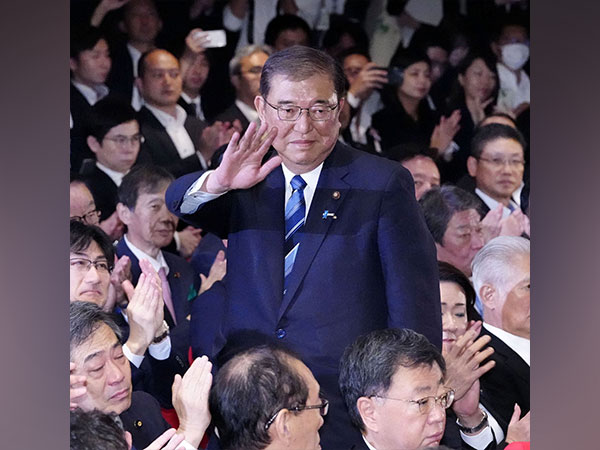Shigeru Ishiba's Economic Revival: Addressing Deflation and Wage Growth
Japan's incoming Prime Minister Shigeru Ishiba emphasized the importance of combating deflation and boosting wages to drive economic recovery. He aims to follow policies initiated by the current administration, focusing on revitalizing consumption and addressing inflationary pressures on households. Ishiba's win may also provide the BOJ with more freedom in monetary decisions.

Japan's incoming prime minister Shigeru Ishiba stressed the urgent need to pull the country out of deflation and pledged initiatives to enhance wages, indicating his immediate goal is sustained economic recovery. He emphasized that reviving consumption is crucial for Japan to escape economic stagnation, suggesting the new administration will focus on strategies to mitigate household inflation impacts.
"Japan's GDP has remained stagnant over the last two decades," Ishiba noted during a news conference post his victory in the ruling party's leadership race, which positions him as the next prime minister. He highlighted that wage growth has not surpassed inflation, hence underscoring the importance of increasing consumption to propel the economy. Ishiba vowed to fast-track Prime Minister Fumio Kishida's policies designed to elevate household income via wage increments.
Ishiba's statements imply a continuity in economic policies from Kishida's tenure, concentrating on wage inflation and advocating the Bank of Japan's recalibration from extensive monetary easing. Parliament is anticipated to appoint Ishiba as the new premier on Tuesday, following which he will establish a new cabinet.
On Friday, the yen rebounded, reversing earlier losses, as Ishiba, a former defense minister and critic of past aggressive monetary policies, secured the leadership of the Liberal Democratic Party. His victory over Sanae Takaichi, an ardent supporter of former premier Shinzo Abe's "Abenomics" policies, in the final re-election round was notable.
Although Ishiba abstained from commenting on monetary policy during the news conference, analysts interpreted his win as eliminating an obstacle for the BOJ to proceed with interest rate increases. "Ishiba's triumph grants the BOJ greater latitude as Ishiba is less rigid on monetary policy and is likely to honor the central bank's decisions," explained Kazutaka Maeda from Meiji Yasuda Research Institute.
"Today's result signifies the dwindling influence of Abenomics," Maeda continued, projecting an imminent interest rate hike. Takeshi Minami, chief economist at Norinchukin Research Institute, echoed this sentiment, suggesting that Ishiba's victory eases the path for the BOJ to normalize monetary policy.
"Japan is effectively moving away from Abenomics in terms of economic policy," Minami remarked. Ishiba is expected to unveil a new stimulus package targeting food and fuel price containment, funded by an additional budget.
Under Governor Kazuo Ueda, who was appointed by Kishida, the BOJ exited negative interest rates in March, shifting short-term borrowing costs to 0.25% in a pivotal move away from prolonged radical monetary policies. Ueda expressed that the BOJ would persist in raising rates should inflation consistently approach the 2% target, while also carefully monitoring global economic uncertainties and their potential impact on Japan's fragile recovery.
(With inputs from agencies.)
ALSO READ
Amanat Kamboj Shatters Junior Athletics Record
China's Economic Shift: Loosening Monetary Policy Amid Tariff Tensions
Currency Shifts Amid Monetary Policy Changes: Dollar Gains Ahead of Key Inflation Data
Sanjay Malhotra's Vision: Stability in Indian Monetary Policy
Our effort has been to make monetary policy as appropriate as possible given prevailing economic conditions and outlook: Outgoing RBI Guv Das.










